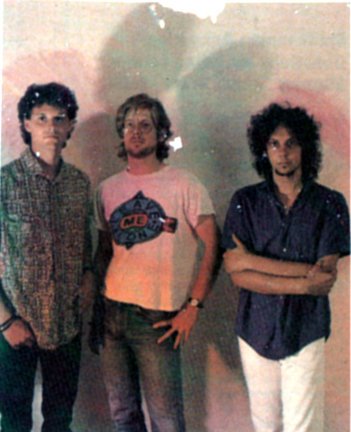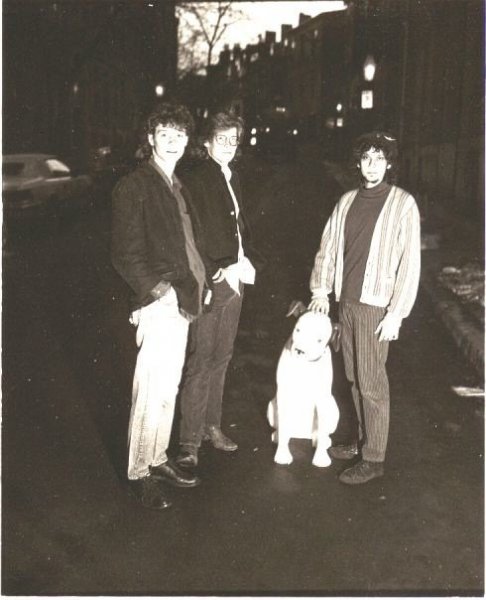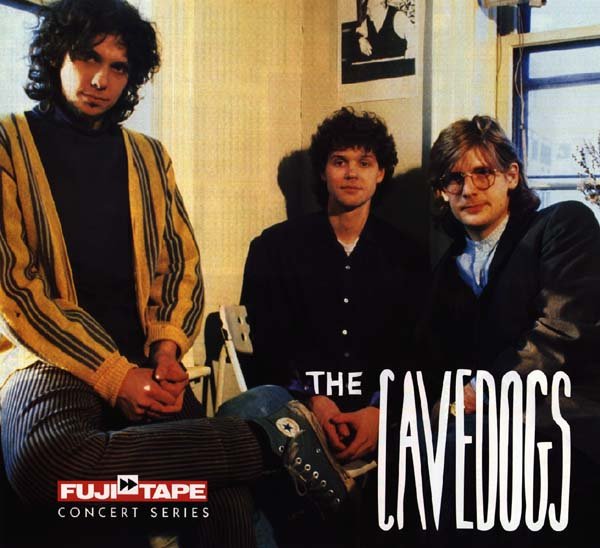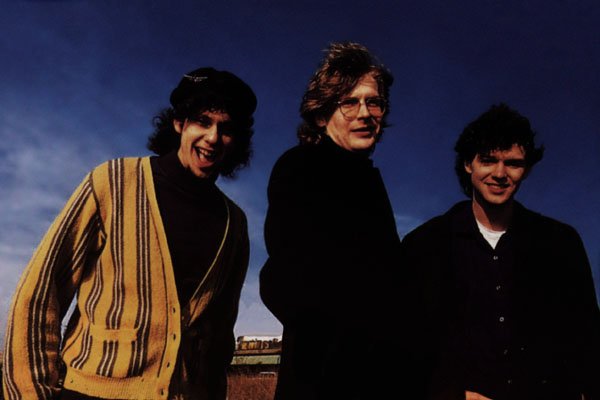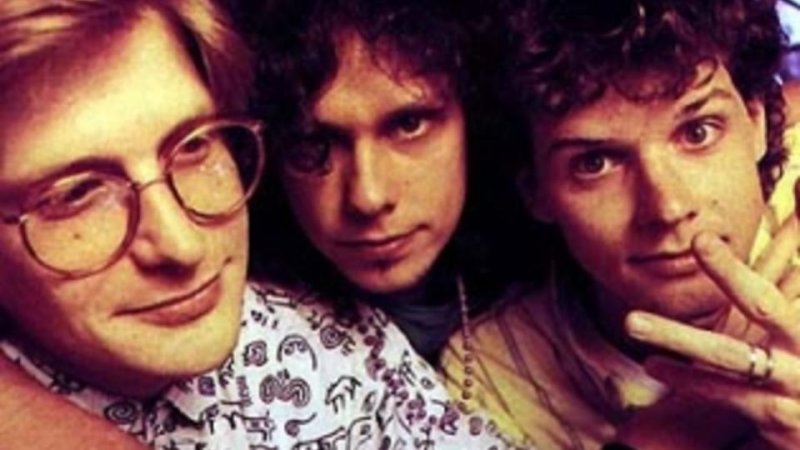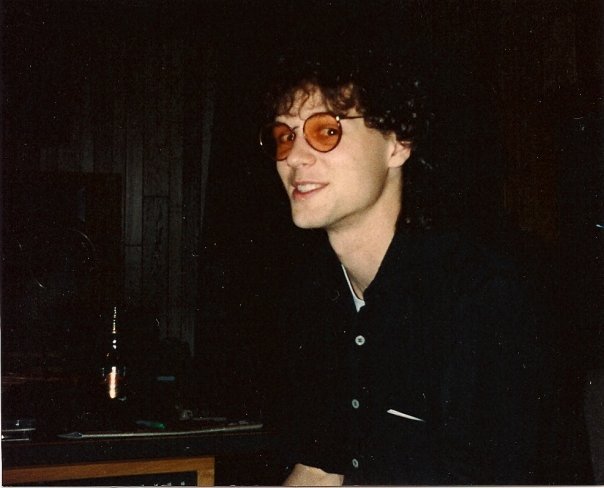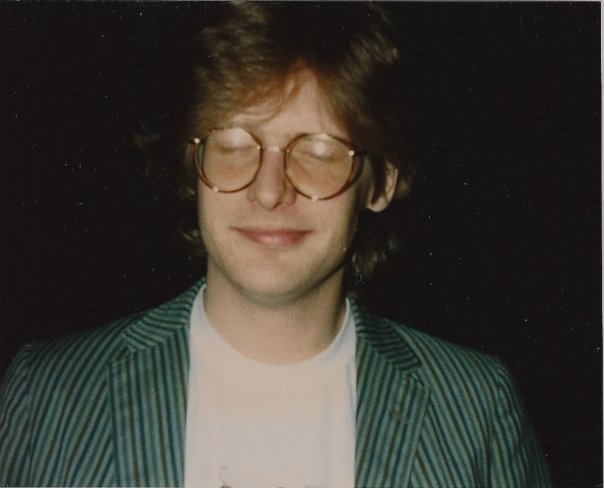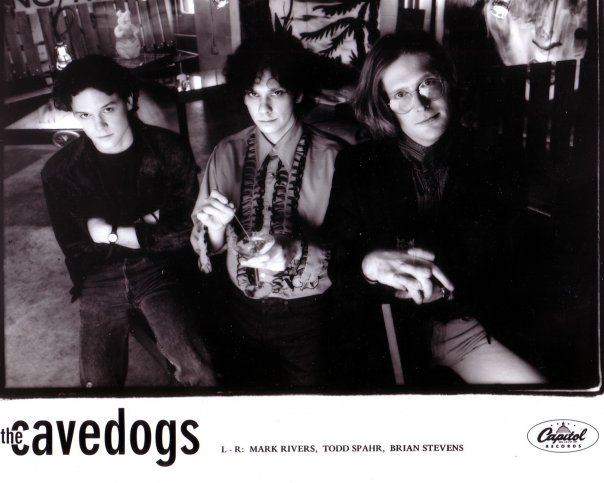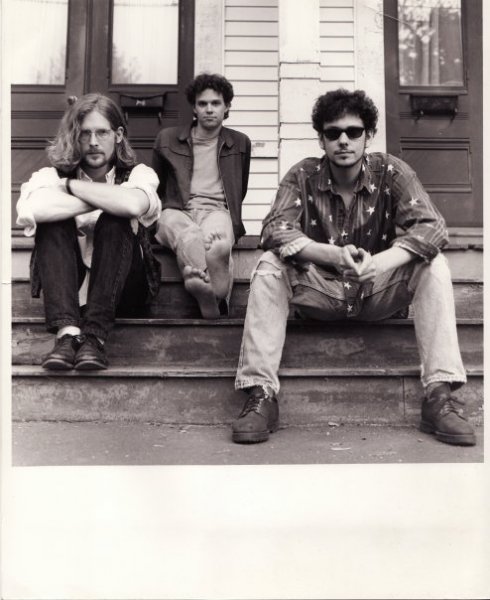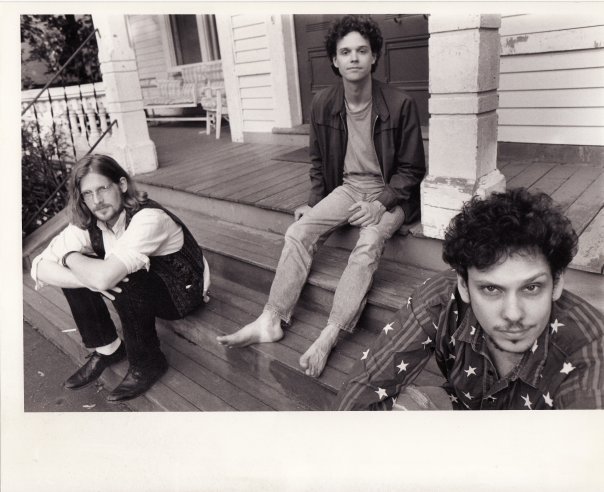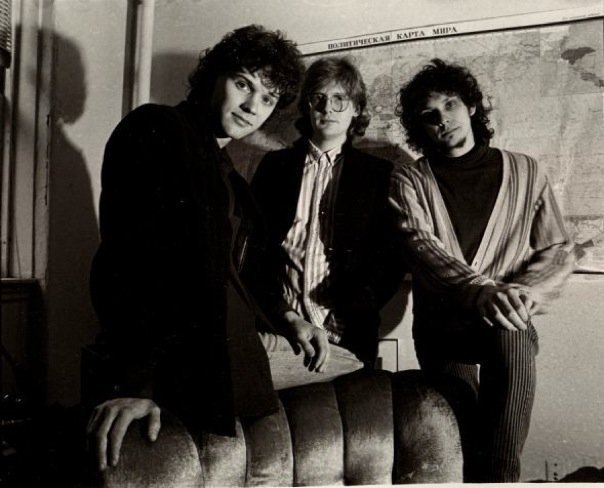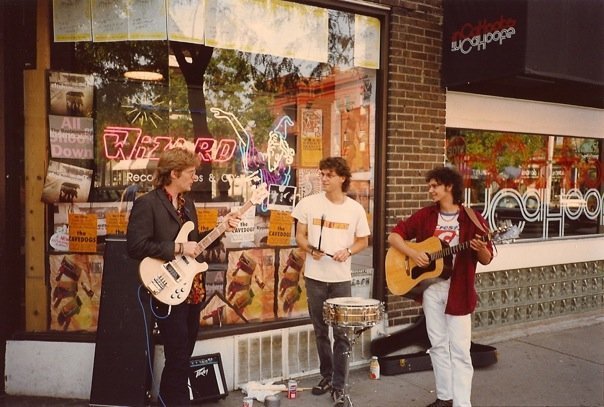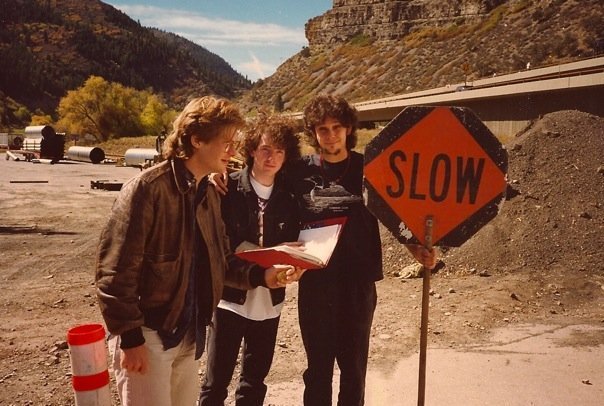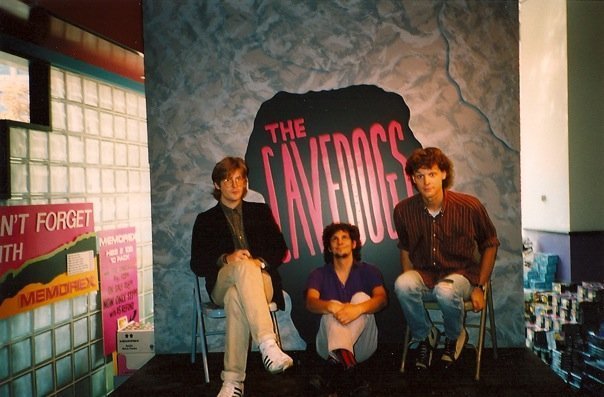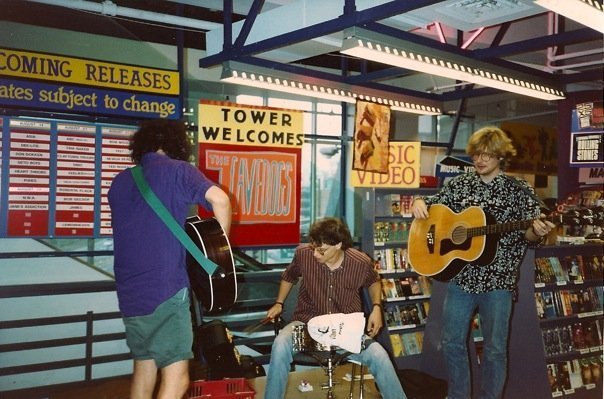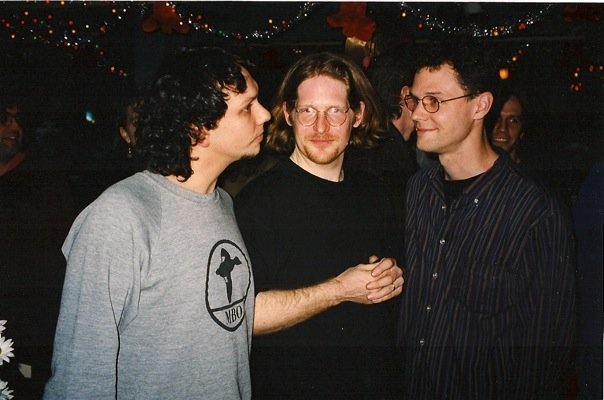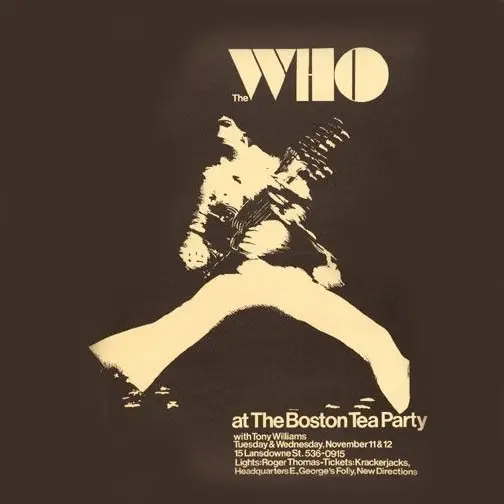The Cavedogs
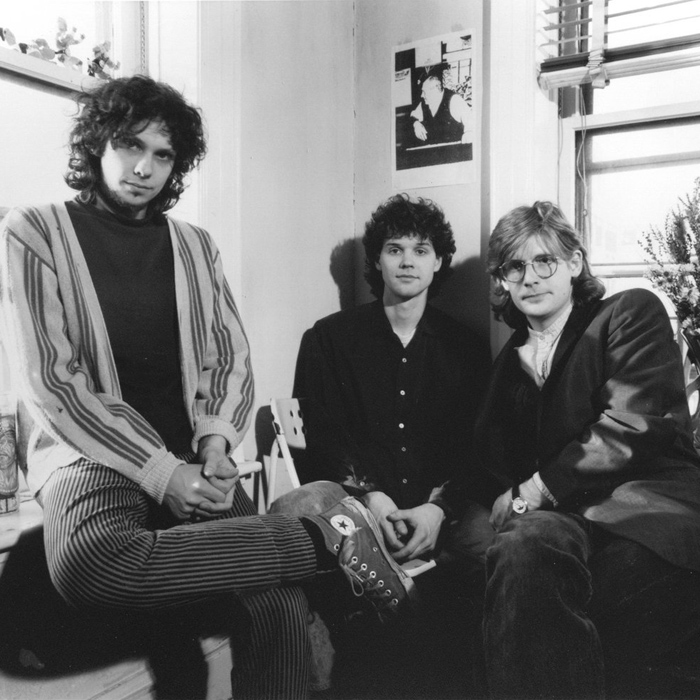
In a September 2002 piece for The Boston Phoenix, Brett Milano vividly evoked a memory from The Cavedogs’ salad days: a riotous gig at a venue on Sunset Strip, throaty screams for an encore and the Boston-based trio agreeing to play “a quick one” before playfully barreling through all nine minutes of The Who’s “A Quick One, While He’s Away.”
That was The Cavedogs’ philosophy, neatly encapsulated in one splendid moment: be clever, be carefree, be ambitious, but also be self-aware, be unpretentious and be genuine. And it was a philosophy that allowed The Cavedogs – despite their modest discography (two studio albums and one EP) – to carve out a sizable niche in Boston’s crowded underground-rock scene in the late ‘80s and early ‘90s.
FORMATION, SIX TENDER MOMENTS, JOY RIDES FOR SHUT-INS
Bassist-vocalist Brian Stevens and guitarist-vocalist Todd Spahr began performing together while studying at Ohio’s Miami University. Following a move to Boston, the duo linked up with drummer-vocalist Mark Rivers and the change in geography and lineup eventually paid off: The Cavedogs self-released a cassette-only album, inked a deal with Enigma Records sublabel Restless and recorded Six Tender Moments, an EP that included a cover of Tom Jones’ “What’s New Pussycat?”
Next, the trio started toiling away on its first LP. “You know that album you’re always looking for when you don’t know what to play? That’s what we’re working on. We’re making that album,” Stevens told Spin magazine during the recording process. The result, Joy Rides for Shut-Ins (issued in 1990 and produced by Ed Stasium) was a brawny, infectious meld of assorted styles (power pop, punk, Merseybeat, British indie pop) and influences (Big Star, R.E.M.).
The album turned out to be precisely as Stevens had described in that it wholly satisfies an array of tastes while spiritedly urging listeners to visit it again and again. Lyrically, it’s bleak (“Bed of Nails,” “Leave Me Alone) as much as it’s bratty (“La La La”’s oft-quoted lines: “We’re just three white, rich kids bitching about the world / We think we got problems / Well, we ain’t got problems”). Sonically, there are just as many contrasts: tight playing and expansive arrangements; glimmery guitar melodies and raucous solos; fluid vocal harmonies and sudden tempo shifts.
SOUL MARTINI, DISBANDING
After the release of Joy Rides for Shut-In, Capitol Records (which had a distribution agreement with Enigma) took over The Cavedogs’ contract. Now on a major label, the threesome got cracking on a follow-up disc with producer Michael Beinhorn. The sessions were marred by disagreements between the trio and the producer, however, primarily over how the album should sound. “If we’d done the album we’d originally pitched to Capitol, then it would have been great,” Stevens said. Released in 1992, Soul Martini was more shadowy, more audacious and more smoothed-over than its predecessor and failed to find an audience; sales were far below Capitol’s expectations and the label dropped the band from its roster.
In his Boston Phoenix article, Milano described an August ’92 show at the Paradise Rock Club in Boston that concluded with fans rushing the stage during an encore. The chaotic gig ended up being a farewell concert of sorts, since the group broke up shortly afterward. Known for their collective sense of wry humor – The “Cavedogs Funtime Hour” on WERS featured their songs and comedy bits and the label-less band once played a show while wearing “for sale” signs – The Cavedogs were no longer having any fun.
POST-CAVEDOGS ACTIVITY, REUNIONS
Following the split, Stevens played on Aimee Mann’s first solo album and toured with her as part of her backing band. Later, he signed with Boston-based label Q Division Records, which released his first solo album. Spahr and Rivers formed Meringue and recorded a single (“Drunk and Quartered”) before joining their ex-bandmate in signing with Q Division. After that, Spahr formed the band Gravy and Rivers formed the group Poundcake before moving to Hollywood, where he wrote for Jimmy Kimmel Live! and composed music for television programs including Parks and Recreation, Lucky Louie and Mr. Show.
In 2001, Stevens, Spahr and Rivers played a reunion set at the International Pop Overthrow festival in Los Angeles and in 2002 Q Division issued an album of rarities and radio broadcasts, Fall Back in It. Reunion performances followed in 2002, 2010 and 2015.
(by Ryan Foley)

